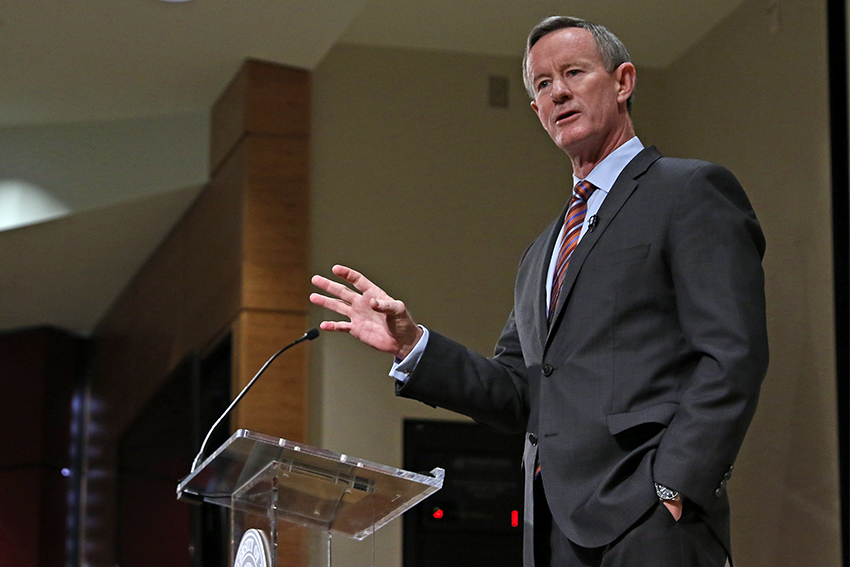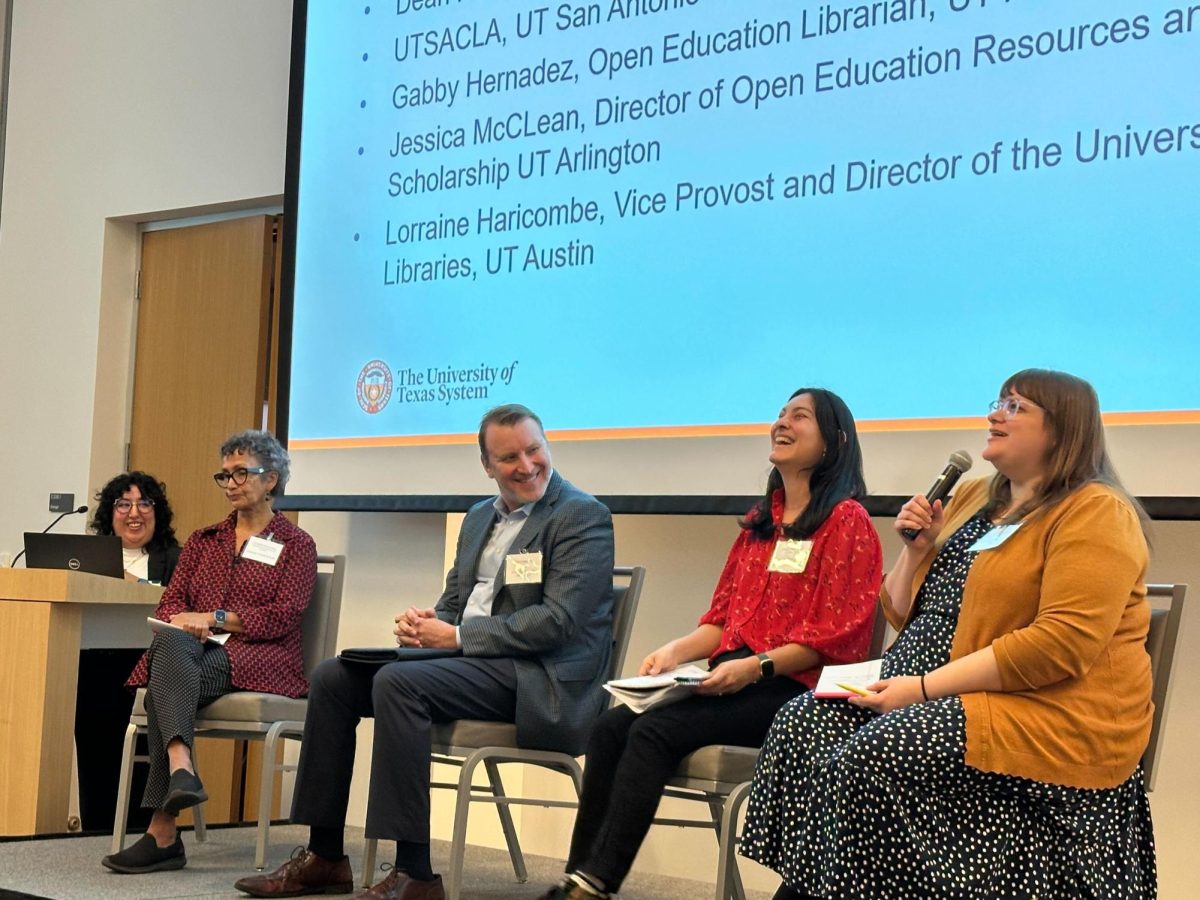As UT System chancellor, William McRaven has traveled across Texas, meeting students from the System’s 14 institutions — something he will miss when he retires in May.
“The thing I like best is seeing students, when you see the impact of the work,” McRaven said in an interview with The Daily Texan. “I’m always inspired by students, particularly by the first in their family to be in school. You realize they will forever change their families with a college degree.”
This is what has made the job worth it for McRaven, who has seen both success and criticism during his three years as the UT System leader.
McRaven will continue helping students next spring as a professor at UT — a position that inspired him to take on the job of chancellor.
Rising to the role
Almost four years ago, McRaven delivered his now-famous UT commencement speech as he grappled with an informal proposal to become the UT System’s next chancellor.
McRaven, a UT alumnus and the renowned Navy SEAL Admiral credited for organizing the raid that killed terrorist Osama Bin Laden, was set to retire from the military in 2014, just as the UT System Board of Regents was looking for a new leader.
The night of UT’s commencement ultimately chased away McRaven’s doubts about the job.
“Frankly, it was just one of those beautiful nights in Austin, and I had the chance to talk to the faculty and the students,” McRaven said in a recent interview with The Shorthorn. “About a month after that I said, ‘Yeah I think this is going to be a good fit for me.’”
That July, the Board of Regents announced McRaven to be their final pick for chancellor and offered him a $1.2 million base pay contract. McRaven accepted the offer, officially becoming chancellor in January of 2015.
Making leaps and strides
Soon after taking office, McRaven used his military background to reshape the UT System into a “team of teams.” Under this concept, McRaven worked to improve communication among UT System administration, universities and health institutions.
UT President Gregory Fenves said McRaven hosted bi-monthly meetings with university presidents, which has helped the System become more connected.
“One of the things he’s done very well is improve communication between university presidents,” Fenves said. “I think that demonstrates the type of leader he is, one who recognizes the importance of communication.”
McRaven also had his eyes set on larger changes for the UT System. In November 2015, he outlined his vision for the System to “lead in a complex world” through eight goals, or “quantum leaps.”
Two of McRaven’s quantum leaps focused on getting more Texas students to successfully enter and graduate college. Steven Leslie, the System’s vice chancellor for Academic Affairs, said these efforts have been McRaven’s priorities.
“Chancellor McRaven has a commitment towards supporting education from K-12 all the way through higher education,” Leslie said. “If (people) knew him like I know him, they would appreciate his strong focus on student success.”
Fenves said McRaven’s support has been key to improving UT’s four-year graduation rates, which rose to almost 70 percent in 2017.
But not all of McRaven’s initiatives were successful.
McRaven’s goal to open a new UT campus in Houston turned out to be more of a stride than a quantum leap, because of scrutiny from the Texas Legislature.
After the UT System purchased Houston land for $215 million in 2016, lawmakers raised concerns that McRaven’s vision for a Houston campus would encroach on the existing work of Houston universities. Last spring, McRaven apologized and announced the re-sale of the land.
“(Lawmakers) needed to see the vision, but they didn’t, and that was my fault,” McRaven said. “Clearly, I could have done a better job.”
State Rep. Donna Howard, D-Austin, said she thinks McRaven handled tense situations in the Legislature well.
“There is also some pushback when (visionary) leadership is exerted, which happened with McRaven,” Howard said.” You’ve got to take the swings and arrows as a visionary leader, which I think he did. ”
A strong legacy
For McRaven, one of his proudest accomplishments was leading the UT System’s Cultivating Learning and Safe Environments (CLASE) study, which shed light on sexual misconduct at UT and led to various safety responses last spring. The Board of Regents approved funding for more CLASE-related efforts in February.
“It was pretty controversial, but we did it anyway,” McRaven said. “You have to understand the problem to take action.”
Leslie said McRaven’s legacy will remain at the UT System even after his retirement.
“He leaves behind him great progress and strong foundations,” Leslie said. “He will always be held in high regards by everyone who’s worked with him.”
Returning to the 40 Acres
After stepping down in May, McRaven said he doesn’t have plans for the rest of the year, except to take a “long vacation.”
But next spring, McRaven will return as a professor at UT’s LBJ School of Public Affairs to share his national security knowledge.
“I’d like to build a course that’s based on my experiences,” McRaven said. “Looking at how national security theory and practice don’t always work in reality.”
Fenves said McRaven will further strengthen UT’s intelligence program as a professor.
“It’ll be a tremendous opportunity for students to work and learn from him, so we’re excited to have him be a member of the University of Texas at Austin faculty,” Fenves said.


















